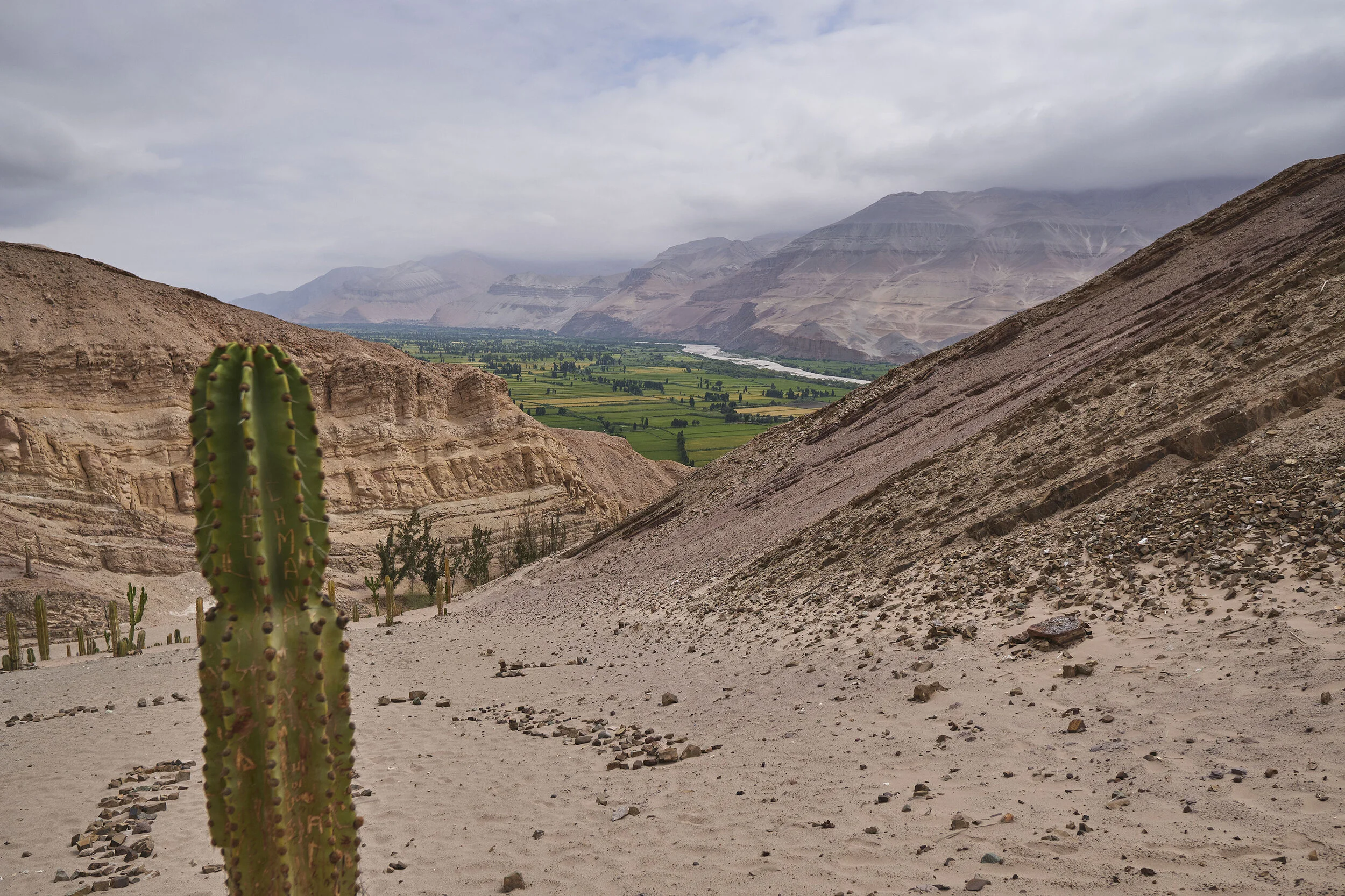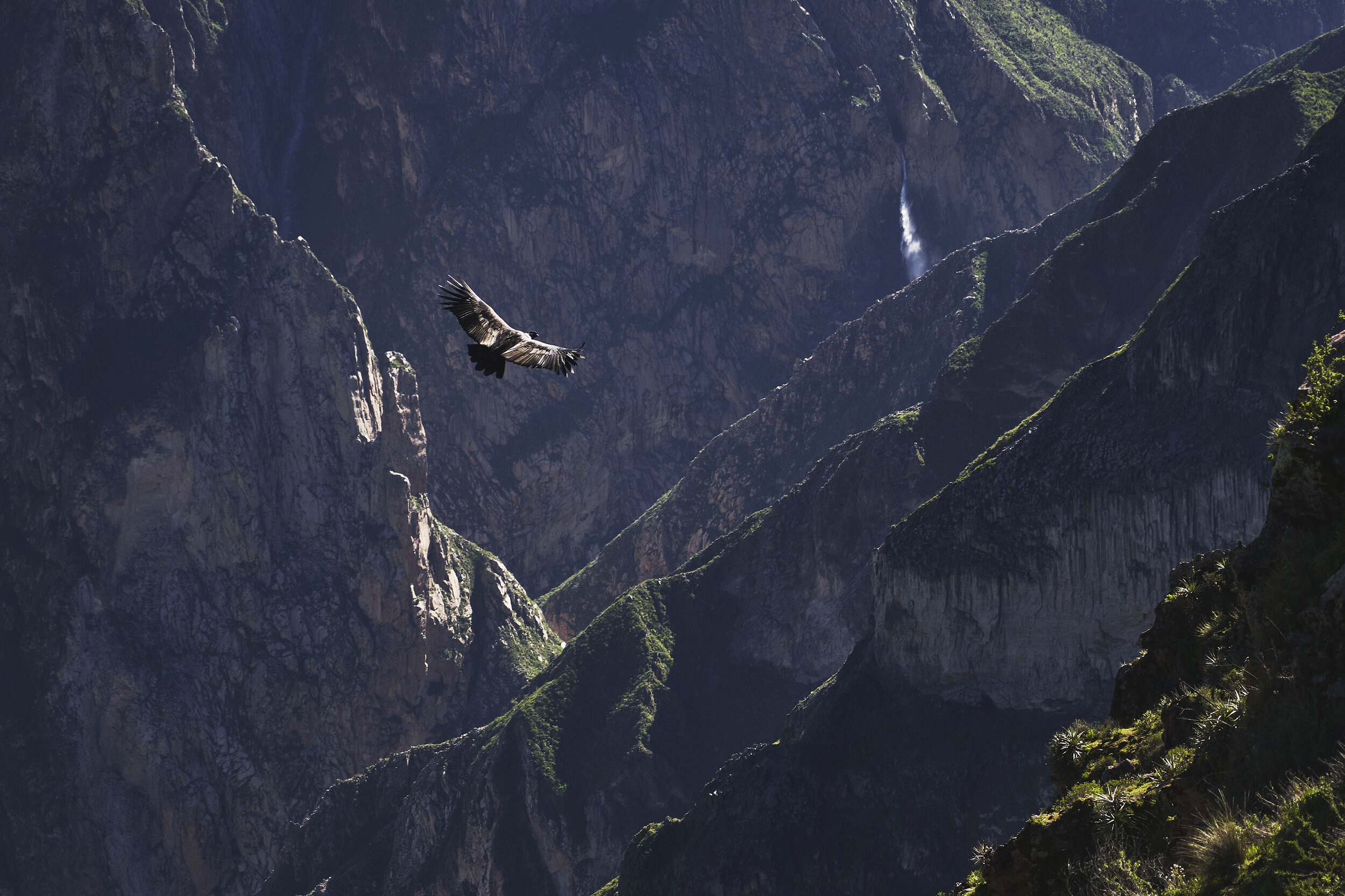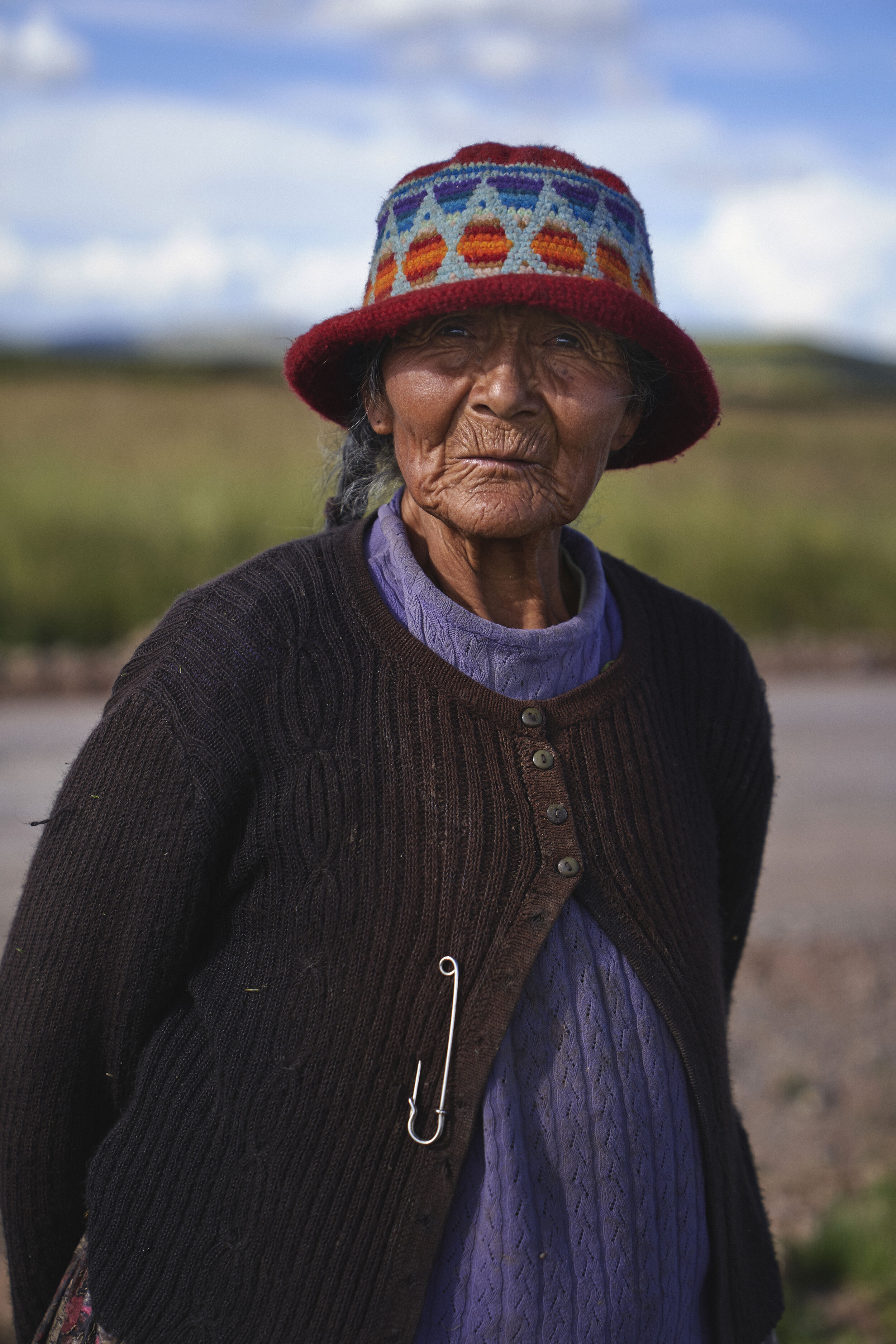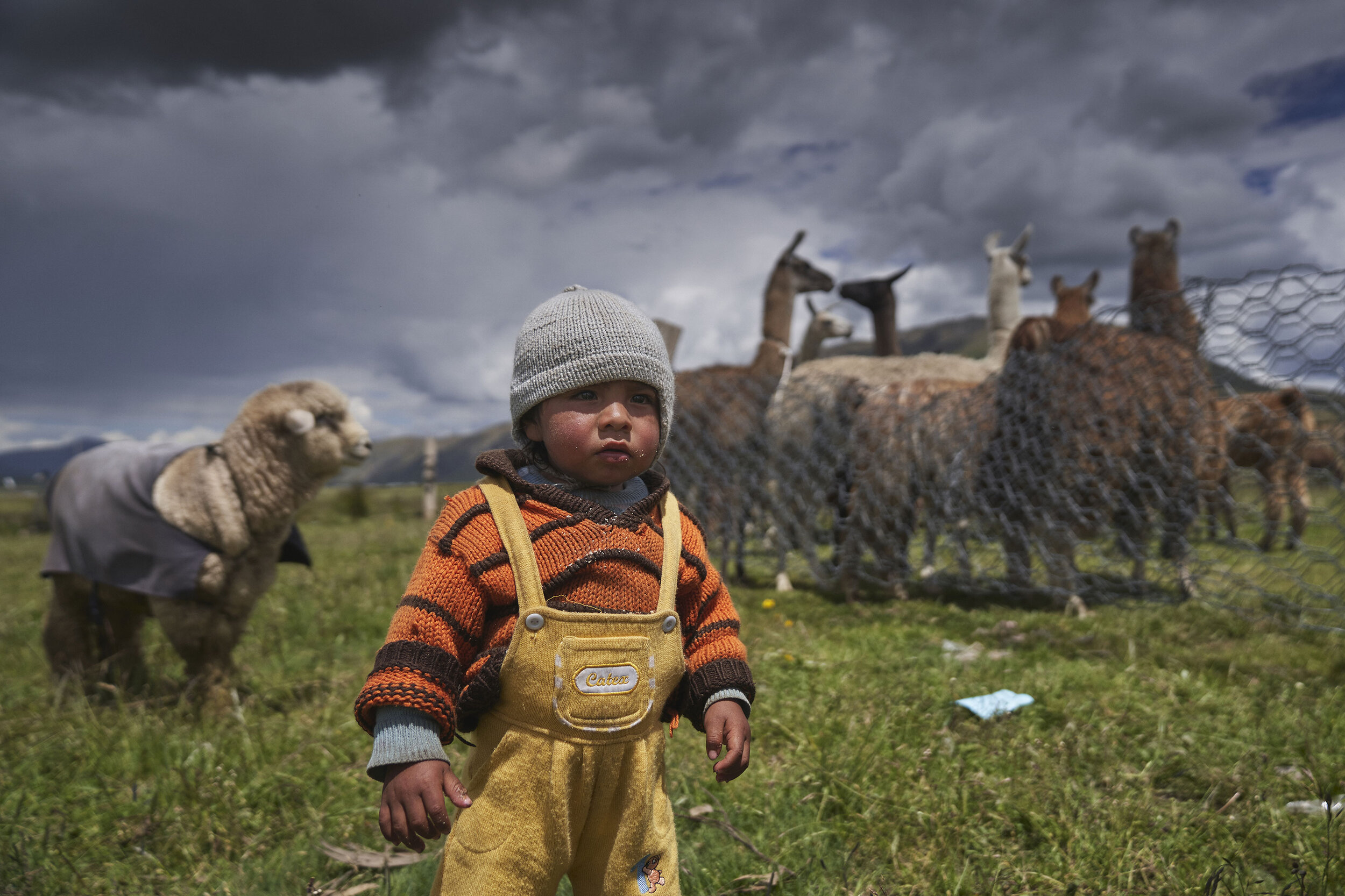How great it was to be traveling through Peru by car. The roads go through some of the most spectacular landscapes on the planet. Along the roads, the more remote ones, you meet fascinating people who seem to belong to a different world and a different time. I remember everything so clearly. But today, it feels like that world was a different one and no longer exists.
I know that it does, I’ve seen glimpses of it on my drives to the market or to the nearby places of nature, but being locked down (can only go 15km up one road) watching the news, your mind definitely plays tricks on you.
“ In Peru, no one really knows when we’ll be free to move around again.”
First it was two weeks. Then another two. Then another and then two more weeks. State of emergency, lockdown, however you want to call it. In Peru, no one really knows when we’ll be free to move around again. Not that it’s stopping some people. As a result, the situation isn’t exactly improving. The numbers of the infected are going up. Hospitals are overburdened. Seems like a disaster in the making. Anyway…
Most of us around the world are in the same situation, of course. We’re all confused, frustrated, maybe even somewhat scared. I’m at least hopeful that when they do open things up, I’ll be able to travel around here in Peru. Even if there won’t be the same interaction with people, just the prospect of seeing more of the natural beauty of this country feels more attractive than ever before.
I’m definitely yearning to hit the road again. Or, to at least, do some day trips. See some different scenery.
I do have it much better than others, I’m in a house with a garden, a view of the mountains. But, I’m dreaming of the road every day. This post is dedicated to travels along the roads of Peru, to the spectacular landscapes and to my random encounters.
The beautiful coast
Somehow, before the worldwide madness began, my parents managed to visit me. And mine and Tanya’s friend did too. I’ve driven this part of the Pan-Americana at least 6 times. Feels strangely familiar now.
A bit further South and most of the way, the Pan-Americana is like this. It’s monotonous, but the occasional sand dunes and beautiful ocean views are like nowhere I’ve seen.
The changes in the landscape along the coast are pretty subtle, but
When the sky is clear, the sunsets along the Pan-Americana on the coast are pretty spectacular.
Going into the interior
One of the joys of being on the road is stopping spontaneously at places you never heard about before, which turn out to be amazing.
One of the spontaneous stops was at “Torro Muerto” an archaeological site with mysterious ancient petroglyphs.
The petroglyphs are on stones in a desert outside a small village. The history behind them is somewhat mysterious. There’s a place of archaeological seemingly at every corner.
Ancient drawings on the hills in Palpa district. The drawings belong to the Paracas culture and are said to be even older than the famous Nazca lines.
Archaeologists discovered many of the drawings relatively recently. Before the historical significance was understood, the government tried to build a road on this hill. You can see it above the drawings.
The roads around Peru have surprises of all kinds. Sometimes, seemingly in the middle of nowhere, you find a really nice eatery…. with a swimming pool.
Windmills at sunset around the region of Nazca.
Another spontaneous stop. We found out that there were dinosaur footprints near a place where we stayed for a night. We went to see them.
After a fairly calm climb up a hill and some beautiful views of the Majes valley, we got up to the footprints. It wasn’t anything truly worth photographing, but it was amazing to see something that… it’s hard to fathom how ancient it was.
The footprints were a huge disappointment for Mia, but she loved the cheesy dinosaur structure all along the way.
A stop at Pacucha lake
On a different trip, on the way to Cusco, I saw a lake on the map. It was not far from where we stayed. Not much of a detour and not much to drive that day. So…. we went.
It was a Sunday, so there were many people around the lake. Everyone was having a picnic and suddenly we got a window into a very real, very regular way of life.
The elderly in particular, seem to enjoy a stroll around lake Pacucha.
Families come to take their places on the grass to relax, to eat some food and to spend some time together.
Always fascinating to see a mix of the modern and the traditional. The elderly women here almost exclusively have the traditional hats, while the younger ones have their own fashion.
I don’t remember this man’s name, but he was very curious. He asked me where I was from, the usual stuff. “Welcome to Pacucha” he said. “Can I swim in the lake?” I asked. “You can, but it’s not very clean.”
To Colca
I’ve already talked a little about Colca cañon. It turned out to be one of the most beautiful regions we visited. And… the condors soaring in the air in the morning… It’s a sight that’s hard to forget.
While the viewpoints are generally packed with tourists, it was low season. We were able to move to different spots and enjoy the sight in relative quiet. I overheard one local woman say to her kids “See children - how beautiful is our Peru!”
There are vendors in most places in Peru and you can bet that people are going to be selling stuff near a place as frequented as the condor view-point.
On the way from Colca to Arequipa there are some incredible wetlands. You can’t see just how spectacular they are until you see them from above.
We were heading for Puno. On the way there was another lake called Lagunillas, which made for a pretty spectacular quick stop.
Always take the secondary road
Puno is the region where lake Titicaca is located. Much of the area we passed on the way to the lake was flat. A valley high up in the mountains. You don’t realise just how high you are when there aren’t mountains peaks around. But, you look at the GPS and, you’re at almost 4000 meters above sea-level.
This woman was picking herbs in a field by the roadside. I asked if they were for. “For stomach pain.” She replied.
The valley provides plenty of pasturelands for animals. With more sheep and cows than lamas and alpacas, it felt almost like… Europe.
I took a shorter route towards the city of Puno. The road wasn’t sealed and it was dusty, but, an experienced traveler friend once told me “If you want to see all the interesting stuff - always take the secondary routes.”
“I know that even now, during the pandemic these people are doing exactly the same thing as they do every day. ”
Definitely turned out to be true here. Along this relatively small stretch of the road there was just a different vibe and a different rhythm of life.
People seem to live oblivious to much of the outside world in these places. I know that even now, during the pandemic these people are doing exactly the same thing as they do every day. Herd the animals. Do the house chores. Few watch the news and worry about the things that aren’t relevant to them.
The children in such places are less curious. They’re more shy or even scared when they see a stranger.
This woman was looking after her cows. She had barely been out of the area. “I was born right here and I’ve lived here all my life.” She said.
With the current situation, I can’t help but be envious of people who live in close connection with nature. Who are free to live their lives as they’ve always lived. Looking at our Facebook feeds and watching the news makes one feel that such people and places don’t exist. But, they do.
Closer to Puno we noticed a few traditional houses at a cross-roads. They turned out to be selling stuff for tourists. They were like little museums. But, the people were friendly and, the stuff some were selling was actually really great. Hand-made hats, ponchos, gloves etc. Tanya couldn’t resist buying some stuff for Mia.
Annabel is the daughter of one of the shop/house-museum owners. With the color combination she was wearing, her hat and her distinct facial features she was the epitome of girl from the region.
Judging Lamas at a beauty contest
In Peru, it seems that as long as you’re driving, particularly in the mountains, you’ll always come across something. Something you never think about when you’re home, or in most other places.
On the way to Pisaq we saw a gathering of people along the road. There were some enclosures and we could make out some animals. An animal market, I thought….
It turned out that there wasn’t just an animal market taking place. There was a “lama beauty contest”. Breeders from the region and beyond had come to show off their animals.
I was soon noticed by the organising committee. It must have been even more of a surprise for them to see a gringo in the middle of nowhere than it was for me to come across their event.
I was soon approached and asked to be the honorary person to place the ribbons on the winning lamas. I couldn’t disappoint the amused locals and did what I was asked. Accompanied by laughter and a frown from the man above, when I struggled to put the ribbon the right way. His lamas has already won 6 ribbons by the time we arrived.
At any public gatherings there are always characters. This man was one of them. He began chatting to me and joking. He poked fun at me a little bit, but the tables turned when I saw him in one of the eateries on the event grounds and asked for a portrait.
He got shy, then tried to maintain a very serious face. Then he dragged a woman who was selling food into the frame. Turned out it was his wife. I promised I’d send the photo to his daughter via Whatsapp, and I did.
One common sight along the roads during a particular time of the year is burning of crops. Farmers do it to remove some of the unneeded crops and to fertilise the soil.
So… There’s a lot to like about traveling on Peru’s roads. Almost since I started traveling I’ve believed that gradually exploring a country with your own vehicle is the best and the most fascinating way to travel.
You see the landscape change. You smell different smells. Breathe different air. In a country like Peru, you feel the changing climates. You see the people change too. I don’t think I’ll ever get sick of traveling like this. And, like many others, I’m yearning so much to do it again.
Things could be much worse
When the state of emergency was announced, we were in Cusco. The hotel where we stayed was lovely, but, there was just a room. No view of the sky and nothing but, stone and concrete all around. I knew we’d all go crazy in there, even if we would only stay the initially proposed 2 weeks.
We had 24 hours to find another place. I got on Airbnb and managed to find a house in a smaller town nearby - Urubamba. The price was heavily discounted because of the situation too. The house had some open space, a garden. I figured that if I can’t leave, at least I’d be able to look at the sky and look at greenery.
Turned out to be one of the best places I’ve stayed. Above is a view from the bedroom window. Still… I’m the kinda person who doesn’t even enjoy paradise, if he doesn’t have the choice to leave. Le't’s see how this disaster plays out.






































